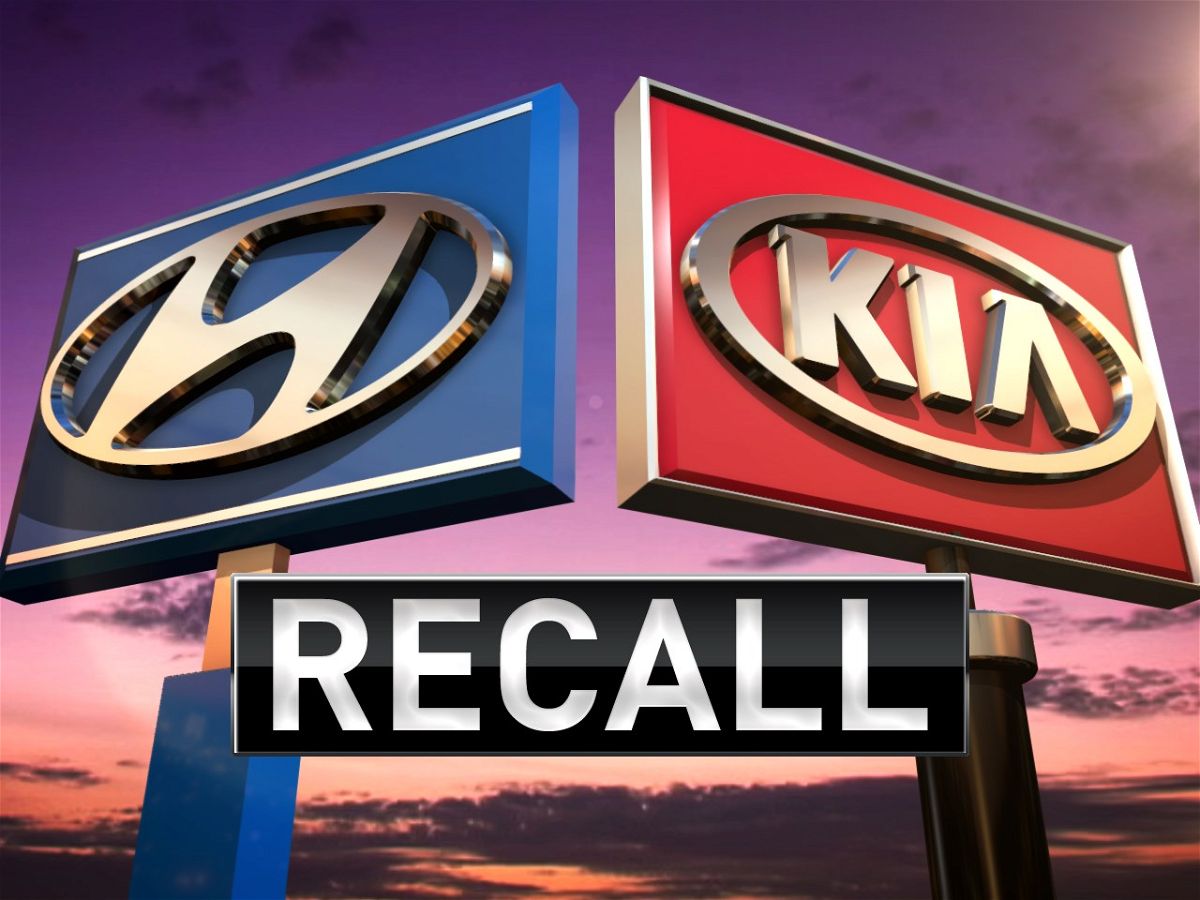Hyundai and Kia recall nearly 3.4 million vehicles due to fire risk and urge owners to park outdoors

DETROIT (AP) — Hyundai and Kia are recalling nearly 3.4 million vehicles in the U.S. and telling owners to park them outside due to the risk of engine compartment fires.
The recalls cover multiple car and SUV models from the 2010 through 2019 model years including Hyundai’s Santa Fe SUV and Kia’s Sorrento SUV.
Documents posted Wednesday by the U.S. National Highway Traffic Safety Administration say the anti-lock brake control module can leak fluid and cause an electrical short, which can touch off a fire while the vehicles are parked or being driven.
The automakers are advising owners to park outdoors and away from structures until repairs are done.
Dealers will replace the anti-lock brake fuse at no cost to owners. Kia says in documents that it will send notification letters to owners starting Nov. 14. For Hyundai the date is Nov. 21.
Hyundai reported 21 fires in the affected vehicles in the U.S., and another 22 “thermal incidents” including smoke, burning and melting of parts, the documents say. Kia reported 10 fires and melting incidents.
Hyundai said in a statement that owners can continue to drive the vehicles and that no crashes or injuries have been reported. The automaker said it was doing the recall to ensure safety of its customers.
The company said an O-ring in the antilock brake motor shaft can lose sealing strength over time due to the presence of moisture, dirt and dissolved metals in the brake fluid, causing leaks. The new fuse limits the operating current of the brake module, the statement said.
In a statement, Kia said an engine compartment fire could happen in the area of the brake control unit due to an electrical short that results in excessive current. The statement says the exact cause of the short circuit is unknown and that there have been no crashes or injuries.
Michael Brooks, executive director of the nonprofit Center for Auto Safety, questioned why the companies aren’t fixing the leak problem and why they are waiting so long to send letters to owners.
The remedy is replacing one fuse with another, but brake fluid can still leak, potentially causing a safety problem, Brooks said.
“Why not fix the problem?” he asked. “What you’re not doing here is fixing the O-ring and the leak that’s causing the problem in the first place. You’re combatting a symptom or part of the problem without actually fixing the underlying design issue.”
Brooks also questioned why NHTSA is allowing the companies to only replace a fuse, and why owners aren’t being sent interim letters immediately warning them of a serious problem. “You would think that you should be notifying those owners right now that they shouldn’t be parking in their garages or their house could catch fire,” he said.
Statements from both companies don’t address why the fluid leaks aren’t being repaired or why it will take about two months to notify owners by letter. Spokespeople for both companies said they would check into the questions.
NHTSA said that under the federal motor vehicle safety act, automakers can choose the remedy to fix a defect. The agency said it will monitor the effectiveness of the repairs and open an investigation if warranted.
In addition, automakers have 60 days to notify owners of recalled vehicles by letter, but often the mailings can happen sooner, the agency said.
NHTSA also issued a statement Wednesday warning owners to park the vehicles outdoors until repairs are made.
Brooks also questioned why NHTSA is allowing the companies to only replace a fuse, and why owners aren’t being sent interim letters immediately warning them of a serious problem. “You would think that you should be notifying those owners right now that they shouldn’t be parking in their garages or their house could catch fire,” he said.
Statements from both companies don’t address why the fluid leaks aren’t being repaired or why it will take about two months to notify owners by letter. Spokespeople for both companies said they would check into the questions.
NHTSA said that under the federal motor vehicle safety act, automakers can choose the remedy to fix a defect. The agency said it will monitor the effectiveness of the repairs and open an investigation if warranted.
In addition, automakers have 60 days to notify owners of recalled vehicles by letter, but often the mailings can happen sooner, the agency said.
NHTSA also issued a statement Wednesday warning owners to park the vehicles outdoors until repairs are made.